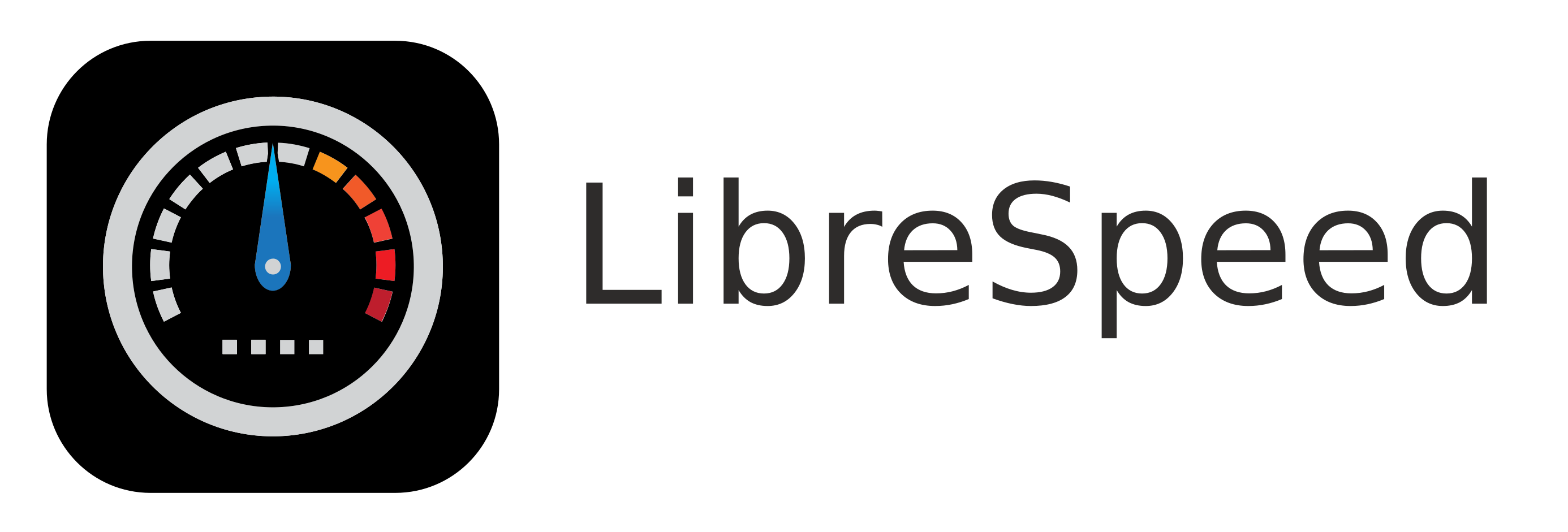109 lines
4 KiB
Markdown
109 lines
4 KiB
Markdown
|
|

|
||
|
|
|
||
|
|
# LibreSpeed
|
||
|
|
|
||
|
|
No Flash, No Java, No WebSocket, No Bullshit.
|
||
|
|
|
||
|
|
This is a very lightweight speed test implemented in JavaScript, using XMLHttpRequest and Web Workers.
|
||
|
|
|
||
|
|
## Try it
|
||
|
|
[Take a speed test](https://speedtest.fdossena.com) (PHP implementation)
|
||
|
|
|
||
|
|
## Compatibility
|
||
|
|
All modern browsers are supported: IE11, latest Edge, latest Chrome, latest Firefox, latest Safari.
|
||
|
|
Works with mobile versions too.
|
||
|
|
|
||
|
|
## Features
|
||
|
|
* Download
|
||
|
|
* Upload
|
||
|
|
* Ping
|
||
|
|
* Jitter
|
||
|
|
* IP Address, ISP, distance from server (optional)
|
||
|
|
* Telemetry (optional)
|
||
|
|
* Results sharing (optional)
|
||
|
|
* Multiple Points of Test (optional)
|
||
|
|
|
||
|
|

|
||
|
|
|
||
|
|
## Server requirements
|
||
|
|
* Any [Go supported platforms](https://github.com/golang/go/wiki/MinimumRequirements)
|
||
|
|
* PostgreSQL or MySQL database to store test results (optional)
|
||
|
|
* A fast! Internet connection
|
||
|
|
|
||
|
|
## Installation
|
||
|
|
|
||
|
|
You need Go 1.13+ to compile the binary.
|
||
|
|
|
||
|
|
1. Use this to install the binary into your `GOPATH`:
|
||
|
|
|
||
|
|
```
|
||
|
|
$ go get github.com/librespeed/speedtest@go
|
||
|
|
```
|
||
|
|
|
||
|
|
2. If you're using telemetry function, create database and import the corresponding `.sql` file under `database/{mysql,postgresql}`
|
||
|
|
|
||
|
|
```
|
||
|
|
# assume you have already created a database named `speedtest` under current user
|
||
|
|
$ psql speedtest < database/postgresql/telemetry_postgresql.sql
|
||
|
|
```
|
||
|
|
|
||
|
|
3. Put `assets` folder under the same directory as your compiled binary.
|
||
|
|
- Make sure the font files and JavaScripts are in the `assets` directory
|
||
|
|
- You can have multiple HTML pages under `assets` directory. They can be access directly under the server root
|
||
|
|
(e.g. `/example-singleServer-full.html`)
|
||
|
|
- It's possible to have a default page mapped to `/`, simply put a file named `index.html` under `assets`
|
||
|
|
|
||
|
|
4. Change `settings.toml` according to your environment:
|
||
|
|
|
||
|
|
```toml
|
||
|
|
# bind address
|
||
|
|
bind_address="127.0.0.1"
|
||
|
|
# backend listen port, default is 8989
|
||
|
|
listen_port=8989
|
||
|
|
# download test chunks, default is 4
|
||
|
|
download_chunks=4
|
||
|
|
# ipinfo.io API key, if applicable
|
||
|
|
ipinfo_api_key=""
|
||
|
|
# distance unit used in frontend, available options: M (miles), K (kilometers), N (nautical miles), default is "K"
|
||
|
|
distance_unit="K"
|
||
|
|
# enable CORS headers
|
||
|
|
enable_cors=false
|
||
|
|
|
||
|
|
# password for logging into statistics page, change this to enable stats page
|
||
|
|
statistics_password="PASSWORD"
|
||
|
|
# redact IP addresses
|
||
|
|
redact_ip_addresses=false
|
||
|
|
|
||
|
|
# database type for statistics data, currently supports: mysql, postgresql
|
||
|
|
database_type="postgresql"
|
||
|
|
database_hostname="localhost"
|
||
|
|
database_name="speedtest"
|
||
|
|
database_username="postgres"
|
||
|
|
database_password=""
|
||
|
|
```
|
||
|
|
|
||
|
|
## Differences between Go and PHP implementation and caveats
|
||
|
|
|
||
|
|
- Test IDs are generated ULID, there is no option to change them to plain ID
|
||
|
|
- API endpoints have the same names, except the `.php` extension (e.g `empty`, `garbage`, `getIP`)
|
||
|
|
- You can use the same HTML template from the PHP implementation
|
||
|
|
- There might be a slight delay on program start if your Internet connection is slow. That's because the program will
|
||
|
|
attempt to fetch your current network's ISP info for distance calculation between your network and the speed test client's.
|
||
|
|
This action will only be done once, and cached for later use.
|
||
|
|
|
||
|
|
## License
|
||
|
|
Copyright (C) 2016-2019 Federico Dossena
|
||
|
|
Copyright (C) 2020 Maddie Zhan
|
||
|
|
|
||
|
|
This program is free software: you can redistribute it and/or modify
|
||
|
|
it under the terms of the GNU Lesser General Public License as published by
|
||
|
|
the Free Software Foundation, either version 3 of the License, or
|
||
|
|
(at your option) any later version.
|
||
|
|
|
||
|
|
This program is distributed in the hope that it will be useful,
|
||
|
|
but WITHOUT ANY WARRANTY; without even the implied warranty of
|
||
|
|
MERCHANTABILITY or FITNESS FOR A PARTICULAR PURPOSE. See the
|
||
|
|
GNU General Public License for more details.
|
||
|
|
|
||
|
|
You should have received a copy of the GNU Lesser General Public License
|
||
|
|
along with this program. If not, see <https://www.gnu.org/licenses/lgpl>.
|